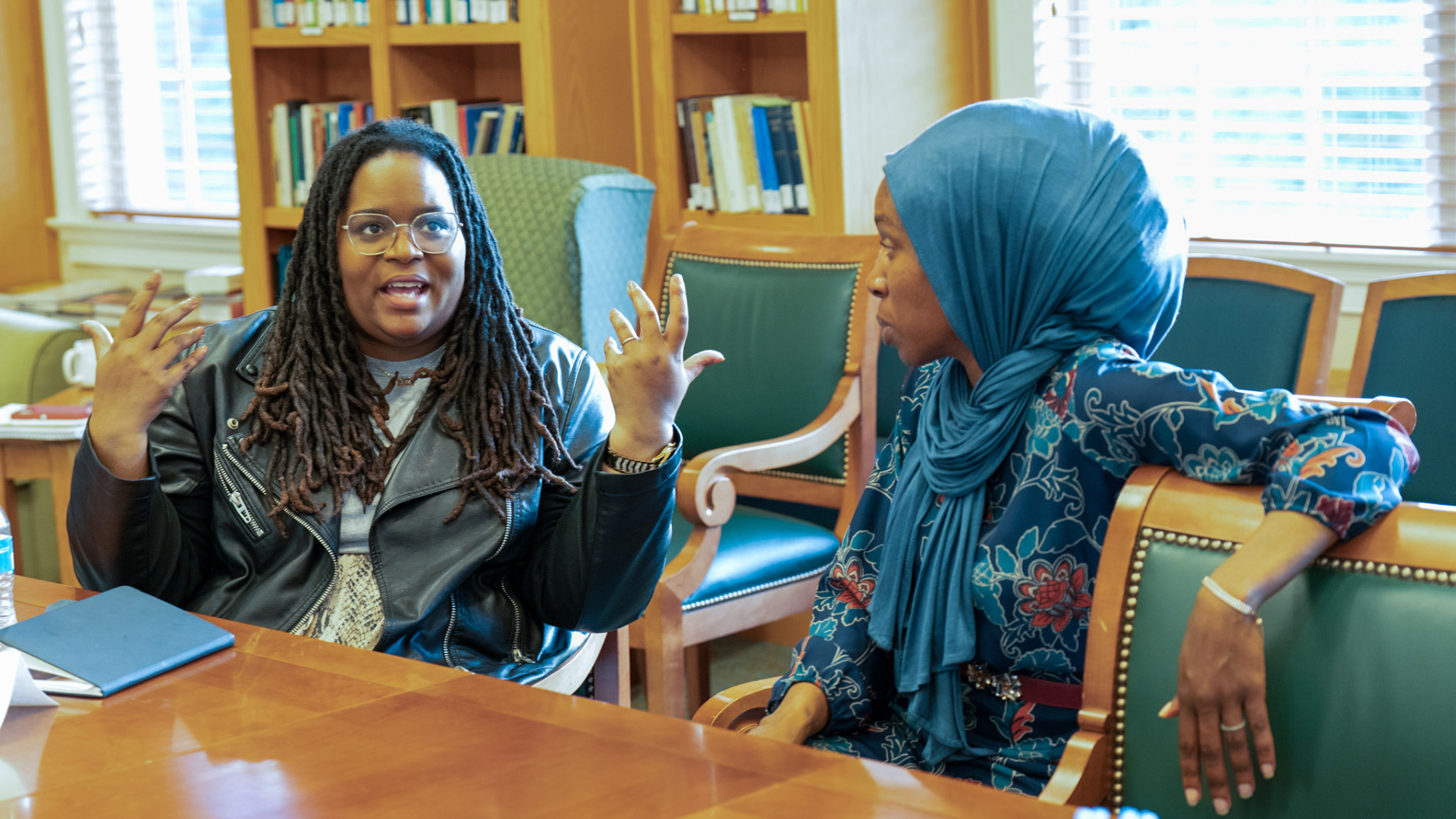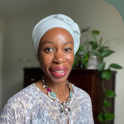
Salaam… Peace Be Unto You… Shalom
Three phrases that capture the divine essence of calm, order, and tranquility of the three Abrahamic faiths. I am grateful to have received not only peace, but it was refreshing to also encounter respect, validation, and compassion from the participants in the ICJS Justice Leaders Fellowship. Prior to this experience, my depth of interfaith relations was my lived experience as an African American Muslim woman in America.
Growing up in the Bible belt of Savannah, Georgia, and attending college in rural Alabama, I had not been one to shy away from religious dialogue or refuse an opportunity to share information about my faith practices and way of life. I’ve even served on a couple of interfaith dialogue panels. However, until this experience as a Justice Leaders Fellow, I hadn’t given much thought to interfaith dialogue being a two-way street, with me having the opportunity to learn about other Abrahamic faith traditions from those who practice them.
Over the course of this fellowship, I was most excited to develop our Community of Practice proposal! For me, it was such a novel undertaking to work on a long-term project with people of varying faiths where we could fully explore AND include our faith practices at the forefront of the project itself. Our group embraced representation of all three Abrahamic faiths—a Muslim, Christian, and a Jew. We also had the added bonus of a participant who practices her faith through a traditional African/spiritual background.We chose to explore economic justice through the lens of mental health accessibility—particularly among women.
During our discussion and proposal development, we got to examine common practices of traditional women and delve into some of the challenges women of these faiths encounter as it relates to economic justice. We also discussed how—at times—unfortunately, abuse of power and misinterpretation of scriptures can be a barrier to religious women establishing economic justice in their own lives.
One challenge we discussed was how a Muslim woman would handle getting support in consensual polygamous marriage Another challenge we discussed was Jewish woman who isn’t granted a ghet navigates a marital relationship without instantly being told to leave or having a negative stigma of an ignorant or oppressed woman. (A ghet is a document that sets the process of a Jewish divorce in motion. The divorce has to be initiated by the husband, which makes situations like the ones described complicated.) In delicate situations like these, women would need to speak to mental health practitioners that are knowledgeable enough in these areas to provide sound feedback, advice, and/or action items.
We investigated the following questions:
- Where do religious women go to get religiously-grounded mental health?
- Are the clergy-trained mental health professionals?
- Do mental health professionals have a base-level understanding of their religious practices?
- If not, are they open to learning?
From our collective anecdotal experiences, we agreed that most women feel lost and isolated on their journey to find religious-savvy mental health practitioners—either of their own faith or a faith-based practitioner of another religion who may understand their concerns. With this understanding, our group developed a proposal for project CARMHA “Competent, Accessible, Religious, Mental Health Awareness.” Like the three Abrahamic faiths, the approach is threefold: CARMHA is an app, a conference, and an advisory board that would provide clinically appropriate, culturally relevant, and spiritually sound mental health support to faith-based communities, and the population at large.
The app would serve as a real-time directory and training tool for service providers. Providers who had undergone certified training on basic principles of each faith would be listed in the directory. As a training tool, there would be modules from faith leaders and experts on some of the basic, and more nuanced topics for which one may seek counseling. The app would be launched at a conference where those seeking support could be paired directly with a mental health professional, and have group support sessions.
The advisory board would be the glue that keeps it all together, making sure the religious leaders, and experts are properly vetted; the information generated is sound; and they would serve as an oversight committee for both the app and the conference. While CARMHA may not be a reality yet, working with women of different religious backgrounds to develop it gave me a glimpse at how powerful a tool it could be! It would be a great stepping stone on the path to achieving economic justice for women of these three religions.
As a physical fitness trainer and health educator, I pride myself on hosting programs that are interdisciplinary and well-rounded, including experts on nutrition, mental health, and mind-body connections. Through my work, I am eager for my next program to be extended to experts and participants of different faiths. While I anticipate the focus to be our collective health and fitness goals, and not so much on our religious commonalities or differences, I think an interfaith fitness program will add another dimension of accountability, growth, and sisterhood. For women, I believe they are also key ingredients for salaam, shalom, and peace.
 Dr. Muslimah ‘Ali is a Ph.D. of Anatomy, and lead certified fitness trainer at Fit & Healthy You with Dr. ‘Ali, and was a 2022-2023 ICJS Justice Leaders Fellow. Learn more about the ICJS programs for community and nonprofit leaders here.
Dr. Muslimah ‘Ali is a Ph.D. of Anatomy, and lead certified fitness trainer at Fit & Healthy You with Dr. ‘Ali, and was a 2022-2023 ICJS Justice Leaders Fellow. Learn more about the ICJS programs for community and nonprofit leaders here.
Baltimore is part of a national conversation around questions of justice, race, and community. Members of the ICJS Justice Leaders Fellowship consider how Jewish, Christian, and Muslim teachings and practice can contribute to the public conversation about (in)justice. Opinions expressed in this blog are solely the author’s. ICJS welcomes a diversity of opinions and perspectives. We do not seek a single definition of justice between or within traditions.